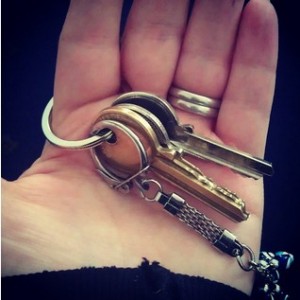If you are considering investing in property, to rent out, or have a property that you would like to let. It is important that you are well-informed about the ins and outs of being a landlord. It isn’t as simple as buying a property, doing it up and finding a tenant to move in; there are many other things you also need to do.
You must ensure that as a landlord, you are properly clued up and are aware of the rules and regulations you must follow. Otherwise you could get in trouble, or worse, be prosecuted.
(Photo source)
To help you on your way, we have put together some handy tips below:
- Do your research
Start off by accessing the area of the property. Perhaps it is located close to a university, so would be most suitable to rent out to students. Or maybe it is located in a semi-rural village close by a sought-after school; in this case it would be best to let the property to a family.
Go online and have a look at the rental prices of similar properties. This will give you an idea of how much rent you can charge tenants.
- Take out landlord’s insurance
It may not be legally required, but it is important that you invest in landlord’s insurance from UK Landlord Insurance.com. The insurance for landlords will cover any damage to your property, and limit your financial risk.
Don’t fall into the trap of thinking that regular homeowner’s insurance will cover you because, in most cases, it won’t. If you rent out your property, and your insurance company find out, they can (and often do) refuse to pay out.
- Be clear on safety
Don’t forget about safety. There are various legal requirements that you must adhere to in terms of safety. For example, if your property uses gas, it must be checked by a qualified gas specialist before new tenants can move in. These checks ensure that the gas supply and gas appliances are all safe and up to standard.
Other things you need to take into account are things like fire alarms, electrical safety, and, of course, general household safety. You may hire a service technician to inspect your electrical system and ensure your tenants’ safety. And if you need electrical trenching services, you should consider hiring a licensed electrician for professional services.
Is the banister strong and sturdy? If it breaks and a tenant is hurt, they could file a lawsuit against you. That is why it is crucial that you are clued up on property safety and your responsibilities.
- Always have a written tenancy agreement
Unless the lease is for three years or more, a written tenancy agreement is not a legal requirement in the UK. However, it is still essential that you have a tenancy agreement drawn up for all new tenants.
The tenancy agreement will set out the terms and conditions of the rental agreement. Including things like the date the rent should be paid, how many people can live in the property and whether or not pets are allowed.
Having a written agreement in place will help to reduce the risk of any disputes between you and the tenants. As everything is already laid out in the agreement.









